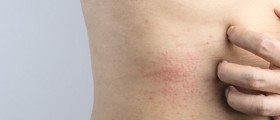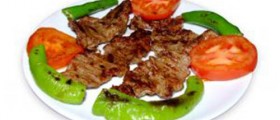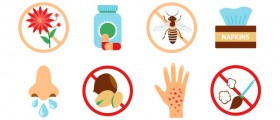Information on Poison Ivy
Up to 60 percent of the entire human population is allergic to poison ivy. The exposure to poison ivy is especially increased during the summer because people spend a lot more time outdoors indulging in numerous different activities such as trekking and hiking.
In most cases, poison ivy allergic reactions resolve on their own without any specific medical treatment, but sometimes the process of recovery may last up to 8 days which brings a lot of uneasiness and discomfort.
Information on Prednisone
Prednisone is one of the most popular medicaments used for the treatment of poison ivy, but it may be associated with certain unwanted adverse effects. One should also avoid using Prednisone for longer periods because it tends to weaken the immune system.

Prednisone is efficient in providing comfort and reducing the symptoms of skin infection. It is a synthetic corticosteroid medication that can be used for numerous different types of inflammatory conditions and allergic reactions.
It works by suppressing the immune system and can be taken orally or in the form of injections. One should always follow the prescribed dosage of Prednisone to achieve optimal results. If it is taken orally, it needs to be taken with food, and the doses must not be skipped. Prednisone can sometimes be affiliated with certain types of side effects.
They usually include weakness, changes in personality, muscle aches, sore throat, confusion, unusual weight loss, joint pain, unusual weight gain, low blood pressure, increased pressure in the eyes, different types of sleep disorders, changes in the menstrual cycle, dizziness, indigestion, exaggerated sense of well being, nervousness, and mood swings.
- This randomized, controlled trial examined the efficacy and side effects of a 5-day regimen of 40 mg oral prednisone daily (short course) compared to the same 5-day regimen followed by a prednisone taper of 30 mg daily for 2 days, 20 mg daily for 2 days, 10 mg daily for 2 days, and 5 mg daily for 4 days over a total of 15 days (long course) in patients with severe poison ivy dermatitis.
- In 49 patients with severe poison ivy, non-adherence rates, rash return, medication side effects, and time to improvement and complete healing of the rash were not significantly different between the two groups. Patients receiving the long course regimen were significantly less likely to utilize other medications (22.7% vs. 55.6%, P = 0.02, number needed to treat 3.05).
Measures of Precaution
Those allergic to Prednisone or any of its ingredients should avoid using it. The same can be said for all those who take mifepristone or any other type of over-the-counter medicaments, prescribed drugs, herbal preparations, and dietary supplements.
People who suffer from systemic fungal infections, microbial infections, mental disorders, cardiac malfunctioning, gastritis, stomach obstruction, or esophagitis should also stay away from Prednisone.
Pregnant and breastfeeding women should also avoid taking Prednisone. Prednisone weakens the immune system, so it may be a good idea to stay away from potential health problems. The problem may lie in the exposure to people who have certain medical conditions such as the common cold, measles, chicken pox, tuberculosis, or any type of infection. Prednisone may lead to water retention, salt retention, potassium deficiency, and calcium deficiency.

















Your thoughts on this
Loading...